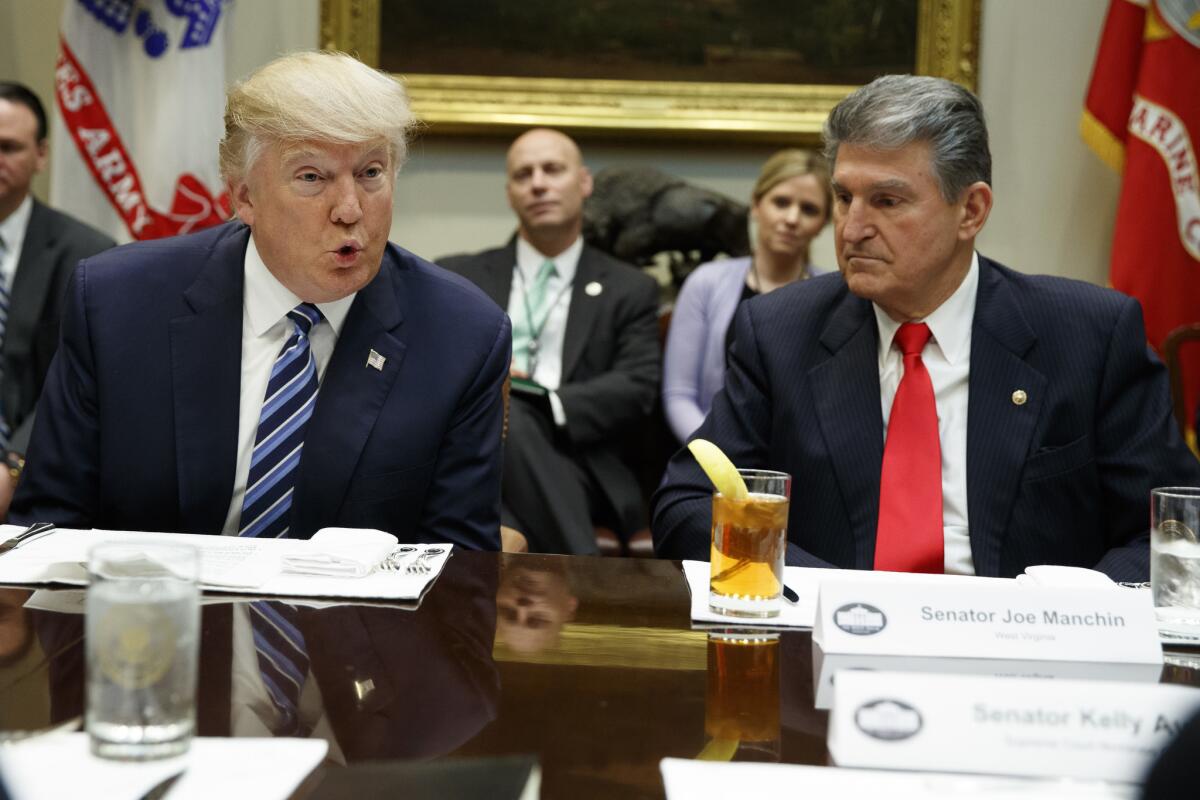Editorial: As states move to restrict voting, Congress must act — and soon

If it wasn’t already obvious that Congress must act to protect voting rights, Georgia’s enactment of the deceptively named Election Integrity Act of 2021 underscores the urgency of that mission.
The Georgia law isn’t as restrictive as it might have been — legislators jettisoned a proposal to ban voting on Sunday, a popular ballot-casting day for African Americans — and some of the criticism of the law has been inaccurate. (President Biden wrongly suggested that the law would prevent working people from voting at the end of a workday.)
It’s also regrettably true that some of the most troubling changes in the law, such as giving the State Election Board more authority over county election offices, wouldn’t be directly remedied if Congress passed the mammoth For the People Act (HR 1) approved by the House and facing uncertain prospects in the Senate.
Still, enacting HR 1 would provide some relief to Georgians whose ability to vote and have their votes counted could be impaired. The state’s new measure restricts the placement of ballot drop boxes, adds new ID requirements for obtaining absentee ballots and gives the state Legislature a larger role in election oversight. Its most offensive provision bars people from offering food and drink to voters standing in line, a practice some churches have engaged in to ensure that voters aren’t deterred from voting by hunger or thirst.
Defenders of this prohibition claim that it’s designed to prevent electioneering and bribery, but another passage in the law forbids soliciting votes “in any manner or by any means or method.” As Richard L. Hasen, an election-law expert at UC Irvine, noted to PolitiFact, the criminalization of providing food and water “is not limited to those who are soliciting votes.”
Like other proposals in state legislatures around the country, the Georgia law, approved in party-line votes, is rooted in the Big Lie propagated by then-President Trump and his supporters that the 2020 election was “rigged” or otherwise invalid.
The law contains this statement: “Following the 2018 and 2020 elections, there was a significant lack of confidence in Georgia election systems, with many electors concerned about allegations of rampant voter suppression and many electors concerned about allegations of rampant voter fraud.”
Even with the attempt to offer equal time for Democrats concerned about voter suppression, this so-called finding of fact channels Trump’s election denialism and slights the consensus that the election in Georgia — in which Biden defeated Trump — was honestly administered.
Other states with Republican-controlled legislatures may pass even worse laws making it harder for voters — especially people of color — to exercise the franchise. That raises the stakes for election legislation in Congress.
It’s imperative that Congress enact the core voting provisions of the For the People Act — including requirements that states allow wide use of mail-in ballots and provide a minimum number of days for early voting — as well as a provision entrusting congressional redistricting to independent commissions. Other provisions of the 800-page bill, including a code of conduct for Supreme Court justices and a new system of public financing for congressional elections — can be addressed separately.
Congress also needs to pass the John Lewis Voting Rights Advancement Act, which would reinvigorate a provision of the 1965 Voting Rights Act that required states with a history of racial discrimination in voting to pre-clear changes in election procedures with the U.S. Justice Department or a federal court.
Even if Democrats abolished the filibuster for legislation (as they should), there is no guarantee that the Senate will pass significant voting rights legislation. Sen. Joe Manchin of West Virginia, who exercises disproportionate influence in the Democratic caucus, is uneasy about federal intervention in elections and reportedly unwilling to vote for an elections bill that isn’t bipartisan. According to the New York Times, other Democrats are also wary, and state election officials believe some of the mandates in HR 1 are impracticable.
Some election provisions in HR 1 could be refined without compromising the central goal of ensuring minimum standards for federal elections across the country. As President Biden said at his recent news conference, successful electoral politics is “the art of the possible.” What Democrats must not compromise on is the urgency of preventing Trump’s Big Lie from making it harder for Americans to vote.
More to Read
A cure for the common opinion
Get thought-provoking perspectives with our weekly newsletter.
You may occasionally receive promotional content from the Los Angeles Times.










